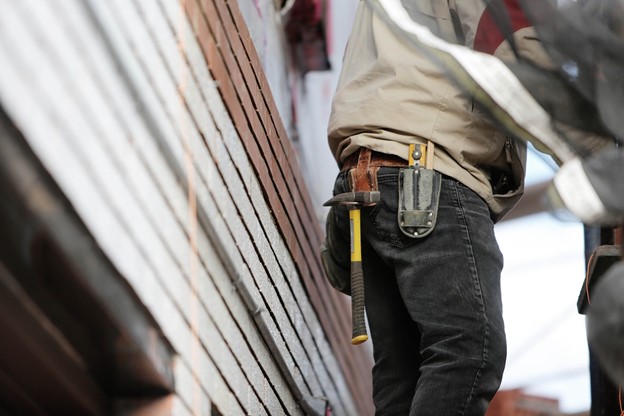For many people, their home is not only their pride and joy, but also their biggest investment. When you’re in the market for a home accessibility contractor, make sure you protect that investment by asking these five important questions of any prospective contractor.
Questions to Ask a Home Accessibility Contractor
1. Are You Licensed, Bonded, and Insured?
Licensing and registration rules vary by state, but most states require some sort of enrollment for residential contractors. Keep in mind the difference between licensing and registration: Licensing involves proving competency through exams, whereas registration is just a record of who is performing the work. If licensing is required in your state, confirm that your contractor has an up-to-date license, and research the license number to discover if there have been complaints filed against the contractor with the licensing body.
While not always a legal requirement, you should find a contractor who is also bonded and/or insured. A bond protects you if the contractor fails to complete the job properly or fails to pay workers, and insurance protects you against injury or damage that happens on your property.
2. Can You Provide References?
When deciding between contractors, you should not only ask for pictures of completed projects, but also the contact information of prior customers who received the same type of work you need. References can tell you about the quality of a contractor’s work, as well as their service, professionalism, and ability to meet deadlines. To find a contractor experienced in accessibility remodeling, find a Certified Aging-in-Place Specialist through the National Association of Homebuilders.
3. Will You Get the Required Permits?
As a homeowner, you may not know all of the permits required to make updates to your home. Make sure you ask your contractor whether they will pull the necessary permits or if you’ll need to. If you modify your home without the proper permits, you could find yourself facing hefty fines. Ideally, the contractor should be the one to pull building permits, as it makes them the responsible party if the project fails to meet building codes.
4. How Much Will it Cost?
Always ask for an itemized quote from any contractor you hire. The quote should lay out the price of materials and labor and indicate whether labor is charged at a flat rate or by the hour. If a contractor hesitates to provide a clearly-itemized quote, you probably don’t want to trust them with your home. However, there may be a surcharge for itemization.
5. How Long Will it Take?
An accessibility modification project can be a big interruption to your everyday life, so it’s important to understand how long it will take before diving in. Deadlines for home remodeling projects can change as the work progresses — contractors may encounter unforeseen construction problems, weather challenges, or even sick workers. However, you’ll want to get a projected deadline for your home accessibility project so you’re protected against inefficient work. You may want to consider adding a clause to the contract that stipulates penalties for excessive delays.
You should also ask the hours that the contracting crew will be at your house each day, so you can plan your schedule accordingly and not be surprised by early visitors. If you’re anticipating a large amount of noise from the project, having a daily timeline lets you keep your neighbors in the loop.
When you’re planning to add accessibility updates to your home, always get bids from at least three contractors so that you can compare pricing and service. Keep in mind that the cheapest contractor isn’t always the best choice — you should be confident that your contractor will transform your home into a place you can live comfortably for the rest of your years.
Image via Pixabay by Life-Of-Pix


Recent Comments